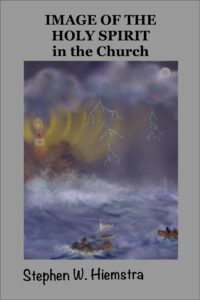The Core Challenge

Jesus said to him, I am the way, and the truth, and the life.
No one comes to the Father except through me.
(John 14:6)
By Stephen W. Hiemstra
If the slander of Marx, Freud, and Nietzsche, posed no philosophical threat to the church, more recent challenges have been more fundamentally challenging to both biblical authority and the church’s witness to it.
The cultural-historical argument put forward by Jack Rogers (2009, 33), a Presbyterian theologian at San Francisco Theological Seminary, and published by the Westminster John Knox Press was evocative: The church got it wrong about slavery, women, and divorce, now it has gotten wrong about homosexuality. Roger’s book was used to launch a successful nationwide campaign within the Presbyterian Church (USA) to ordain homosexuals and to support gay marriage.
Roger’s book goes on to challenge orthodox biblical hermeneutics. Where an orthodox approach to biblical interpretation would consider the author’s intent, other statements in scripture, and the reader interpretation (Vanhoozer 1998, 25) in the original languages, Rogers (2009, 61) advises to focus on the double-love command. What would a loving God want us to say or do? While the role of love in Christian witness is undeniable, God’s self-revelation to Moses is more complete: “The LORD, the LORD, a God merciful and gracious, slow to anger, and abounding in steadfast love and faithfulness.” (Exod 34:6) God is love, but he is not only love.
While one might criticize Rogers as unrepresentative, unbiblical, and unorthodox, his critique split the Presbyterian Church (USA) and other denominations since then. The problem is that his core challenge is at least partially true and Roger’s argument is intuitive to any rebellious teenager. In our anti-intellectual milieu, who has the patience to hear out a complex, theological rebuttal?
The crisis of authority that led to the reformation began with the infusion of humanism into the church. Roger’s anthropological argument reiterates this same humanistic critique. Its the Bible and tradition once again, but this time the tradition taken is from culture, not church practice. The reformers broke away from the Catholic Church to emphasize the authority of scripture much like the breakaway denominations today.
The Role of Materialism
At the time of the reformation (after 1517), few people doubted the metaphysical reality of God and most people could not read a Latin Bible. When Luther and others translated the Bible into the languages commonly understood, this was something new and intriguing for most people who could not read even their own native languages. When Calvin introduced public education in Geneva, it was expressly so that they could read their own Bibles.
Today in our materialistic culture, most Western people are functionally literate. What is different is that the metaphysical reality of God is openly ridiculed in public schools, in the media, and among intellectuals. Furthermore, the deconstructionism promoted by cultural Marxists, which questions all forms of authority (e.g. Marcuse 1974, 36), leaves people suspicious of all leaders and radically alone (Nouwen 2010, 12). A replay of the crisis of authority from the reformation accordingly plays differently in this new cultural context.
Loss of the Christendom and Church-State Separation
Returning to this problem of the loss of Christendom and church-state separation, the new cultural context provides no shelter from secular intrusion to our kids. Even as the formational concern becomes more critical for adults, our kids are growing up without the benefit of having seen things work differently than the view given them on television, in public schools, and everywhere else they turn. Every flavor of perversion is immediately available and poses a claim on a kid’s devotion even as parents fight daily to maintain standards of living and decency.
In this context, cultural Christianity offers no bulwark against the evil and slander of our time. The good news is that Christ died for our sins so that we don’t have to.
References
Marcuse, Herbert. 1974. Eros and Civilization: A Philosophical Inquiry into Freud (Orig Pub 1955). Boston: Beacon Press. Nouwen, Henri J. M. 2010. Wounded Healer: Ministry in Contemporary Society (Orig 1972). New York: Image Doubleday. Rogers, Jack. 2009. Jesus, The Bible, and Homosexuality: Explode the Myths, Heal the Church. Louisville: Westminster John Knox Press. Vanhoozer, Kevin J. 1998. Is There a Meaning in This Text: The Bible, The Reader, and the Morality of Literary Knowledge. Grand Rapids: Zondervan.
The Core Challenge
Also see:
The Face of God in the Parables
The Who Question
Preface to a Life in Tension
Other ways to engage online:
Author site: http://www.StephenWHiemstra.net
Publisher site: http://www.T2Pneuma.com
Newsletter at: https://bit.ly/Look_25 , Signup
The post The Core Challenge appeared first on T2Pneuma.net.



